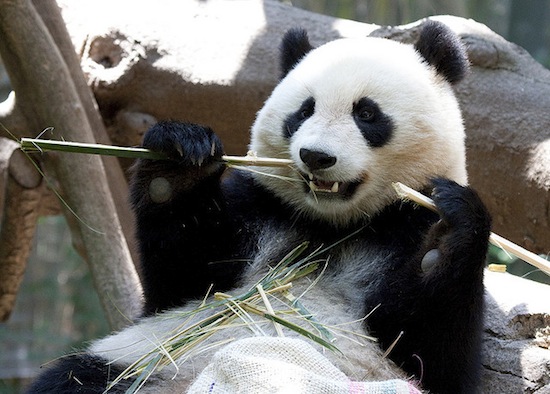One down side of biofuels like ethanol is that they rely on easily processed crops that are also staple foods. The more farm space is given over to raising corn, soybeans, and sugar for fuels, the less is available for raising those crops to feed humans. Luckily, scientists have just discovered microbes that could help turn waste plant matter like corn stalks and wood chips into fuel. All they needed was a little bit of panda poo.
Pandas, as any first-grader knows, eat basically nothing but bamboo, and bamboo is tougher to digest than the concept of President Bachmann. They make bikes out of the stuff, for crying out loud. But panda guts are full of bacteria that can pound bamboo into submission, turning the woody stalks into simple sugars. That's what you need to run a panda, and it's also what you need (plus some processing) to run a car. So adding a little bit of panda-digestion mojo to the biofuel manufacturing process could allow us to make functional fuels out of inedible-by-humans waste material. And it could eliminate the need for some of the harsher aspects of biofuel production, like high heat, high pressures, and acid.
Bonus: Making our fuel economy depend on giant pandas has to be a boost for conservation, says the study's co-author Ashli Brown:
"The discovery also teaches a lesson about the importance of biodiversity and preserving endangered animals," Brown said, noting that less than 2,500 giant pandas remain in the wild and about 200 are in captivity. "Animals and plants are a major source of medicines and other products that people depend on. When we lose them to extinction, we may lose potential sources of these products."



